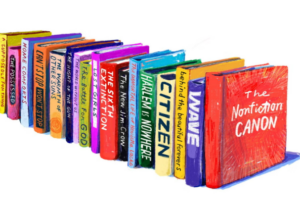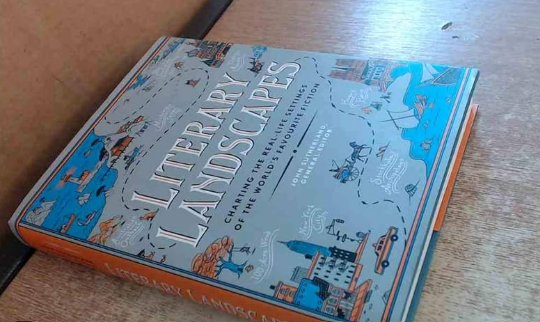The 21st century has witnessed an extraordinary literary renaissance, with authors exploring diverse themes, genres, and perspectives. This article embarks on a literary odyssey, navigating through the pages of the best reads that have left an indelible mark on the literary landscape.

Diversity in Themes and Voices
1. “The Kite Runner” by Khaled Hosseini
Hosseini’s emotionally charged narrative takes readers on a journey through friendship, betrayal, and redemption against the backdrop of Afghanistan’s tumultuous history.
2. “The Curious Incident of the Dog in the Night-Time” by Mark Haddon
Haddon’s unique perspective, narrated by a teenage boy with autism, unravels a mystery and offers a poignant exploration of human relationships.
3. “The Underground Railroad” by Colson Whitehead
Whitehead’s powerful novel reimagines the Underground Railroad as a literal network, providing a harrowing portrayal of slavery and the pursuit of freedom.
Epic Fantasies and Otherworldly Realms
4. “The Hunger Games” by Suzanne Collins
Collins’ dystopian saga introduces Katniss Everdeen, a symbol of resistance, in a world where survival is pitted against the Capitol’s oppressive regime.
5. “A Song of Ice and Fire” series by George R.R. Martin
Beginning with “A Game of Thrones,” Martin’s epic fantasy series unfolds a complex narrative of power, politics, and moral ambiguity in the land of Westeros.
6. “Never Let Me Go” by Kazuo Ishiguro
Ishiguro’s haunting exploration of a dystopian society where human clones confront their fate raises profound questions about identity and ethics.
Cultural Perspectives and Global Narratives
7. “The Brief Wondrous Life of Oscar Wao” by Junot Díaz
Díaz’s Pulitzer Prize-winning novel weaves Dominican history, magical realism, and the immigrant experience into a vibrant and tragic family saga.
8. “Half of a Yellow Sun” by Chimamanda Ngozi Adichie
Adichie’s novel chronicles the Nigerian Civil War, providing a poignant portrayal of the impact of conflict on individuals and communities.
9. “The Shadow of the Wind” by Carlos Ruiz Zafón
Zafón’s atmospheric tale is set in post-war Barcelona, blending mystery, romance, and a love for literature into an enchanting narrative.
Contemporary Classics and Thought-Provoking Fiction
10. “The Road” by Cormac McCarthy
McCarthy’s post-apocalyptic masterpiece follows a father and son’s journey, exploring themes of survival, morality, and the enduring human spirit.
11. “Life of Pi” by Yann Martel
Martel’s magical realist adventure, where a young boy survives at sea with a Bengal tiger, explores faith, storytelling, and the nature of belief.
12. “The Girl with the Dragon Tattoo” by Stieg Larsson
Larsson’s gripping thriller introduces the indomitable Lisbeth Salander, unraveling a complex mystery of corruption and family secrets.
Science Fiction and Speculative Wonders
13. “The Martian” by Andy Weir
Weir’s riveting tale of survival on Mars combines science, humor, and gripping suspense as an astronaut fights against the odds to stay alive.
14. “Cloud Atlas” by David Mitchell
Mitchell’s intricate narrative spans centuries and continents, connecting characters and stories in a literary puzzle that explores the interconnectedness of humanity.
15. “Neverwhere” by Neil Gaiman
Gaiman’s urban fantasy takes readers to the dark and magical realm of London Below, where ordinary man Richard Mayhew becomes entwined in a fantastical adventure.
Family Sagas and Intimate Narratives
16. “Everything I Never Told You” by Celeste Ng
Ng’s exploration of a Chinese-American family’s dynamics is a profound meditation on identity, expectations, and the impact of societal pressures.
17. “A Little Life” by Hanya Yanagihara
Yanagihara’s emotionally charged novel delves into the lives of four friends in New York City, exploring trauma, friendship, and the complexities of human relationships.
18. “The Goldfinch” by Donna Tartt
Tartt’s Pulitzer Prize-winning novel follows Theo Decker from a tragic event in his youth to the art underworld of New York, weaving a tale of loss, survival, and the transformative power of art.
Conclusion: A Tapestry of Literary Excellence
The 21st century has given rise to a tapestry of literary excellence, with authors crafting stories that resonate across borders and generations. From epic fantasies to intimate family dramas, these novels offer readers a glimpse into the human experience in all its complexity. As we continue to navigate the literary landscape, these works stand as pillars of creativity and imagination, shaping the literary canon of the 21st century.

